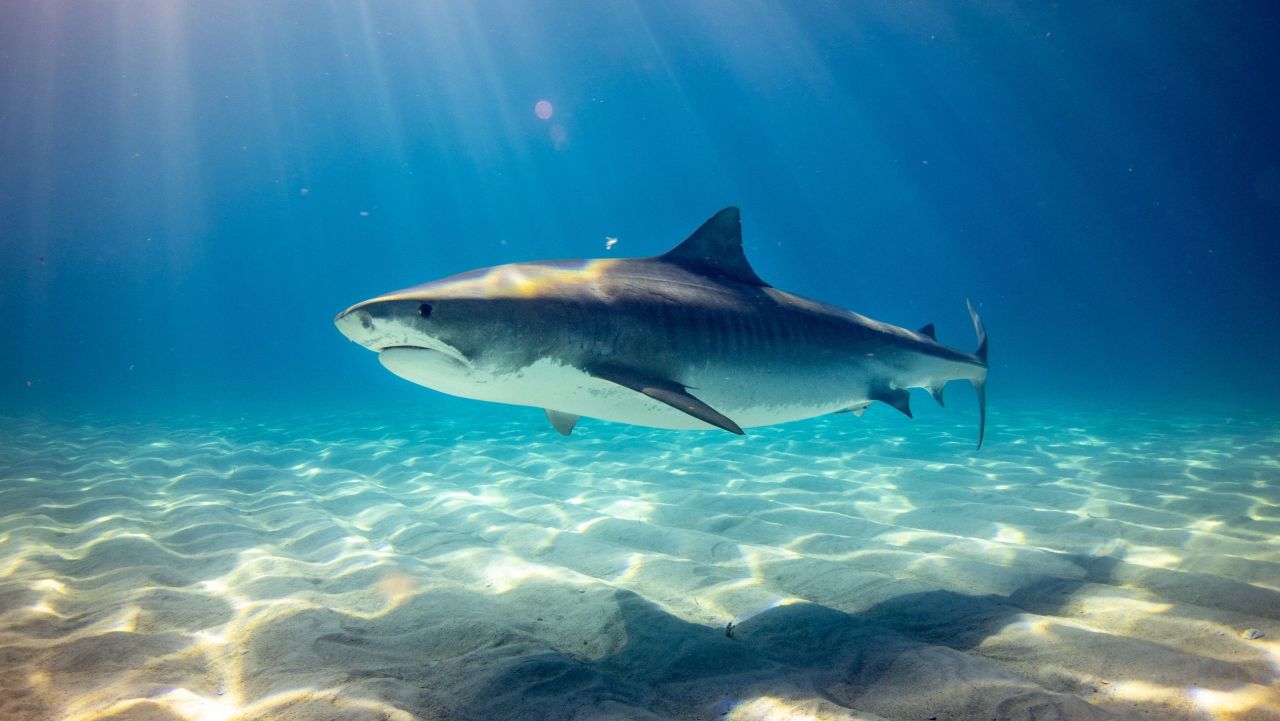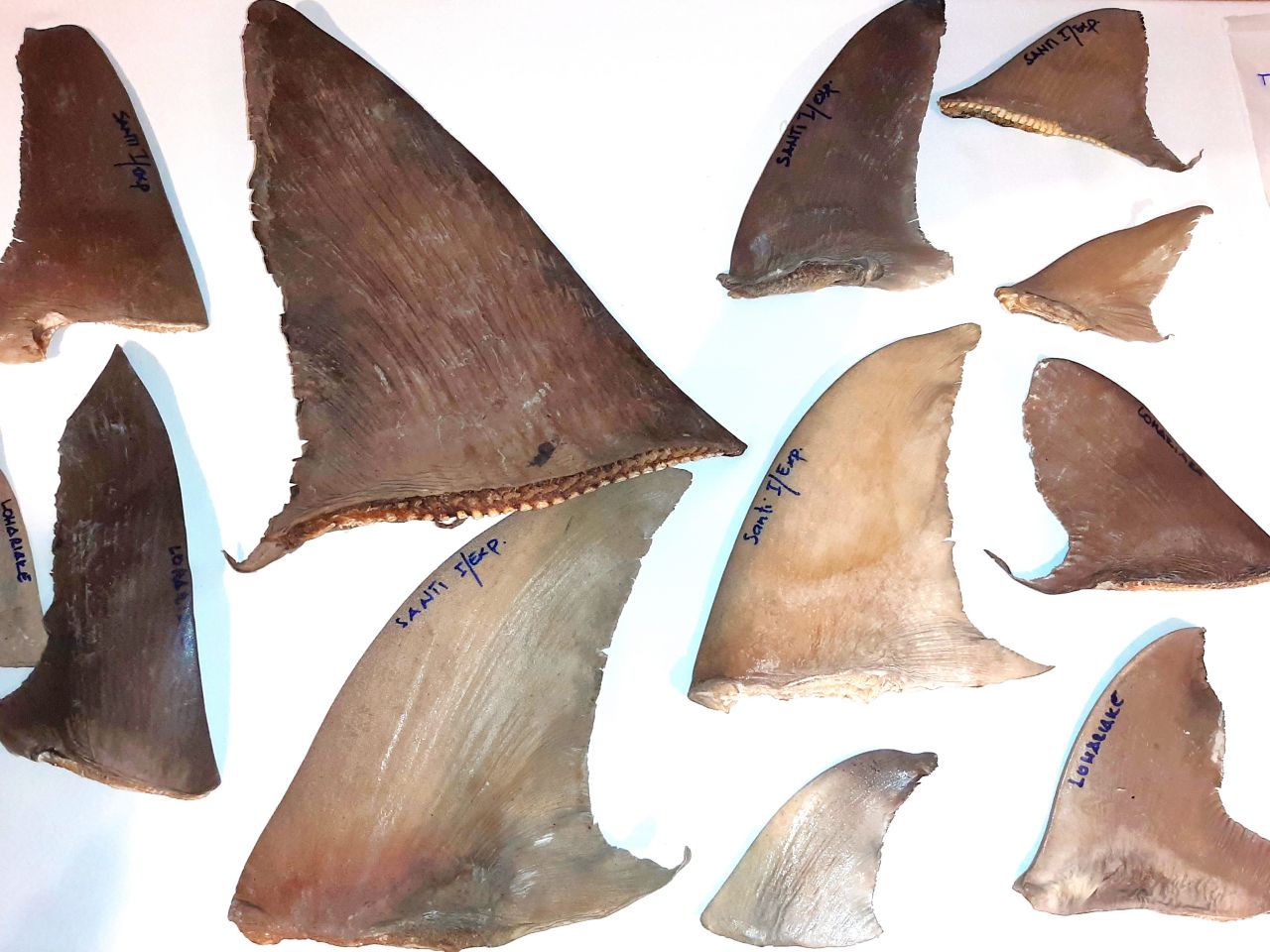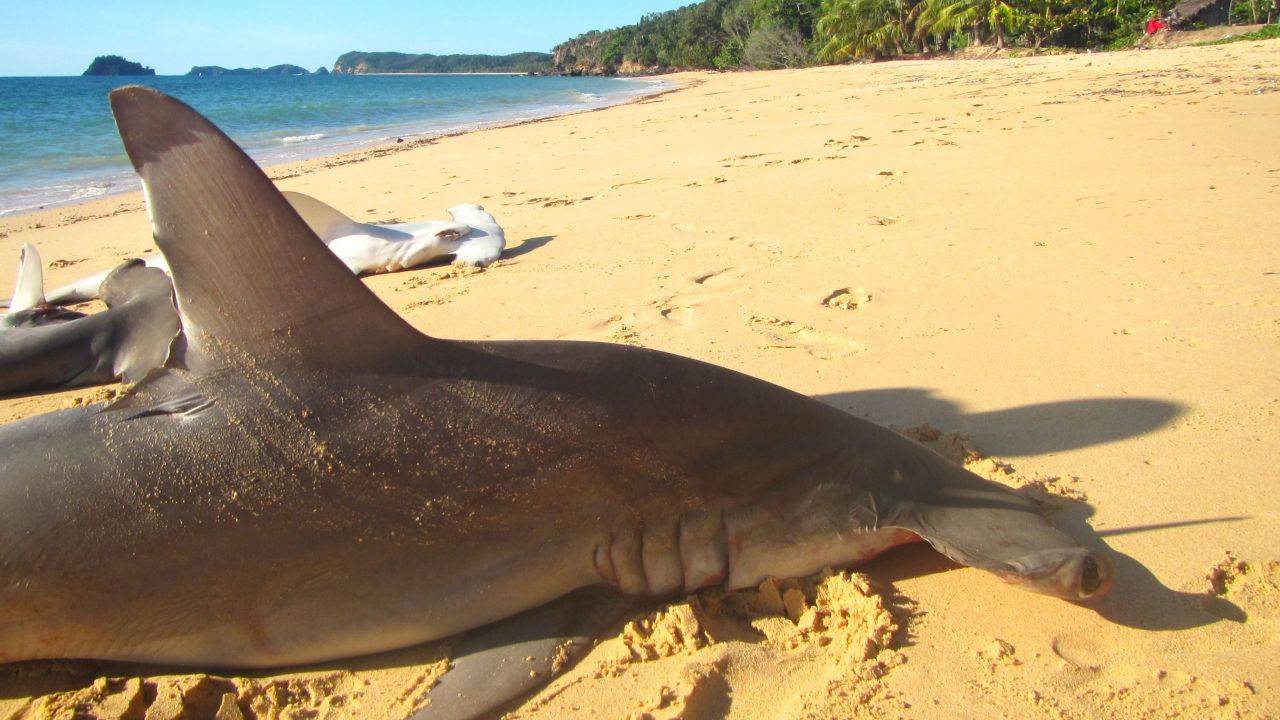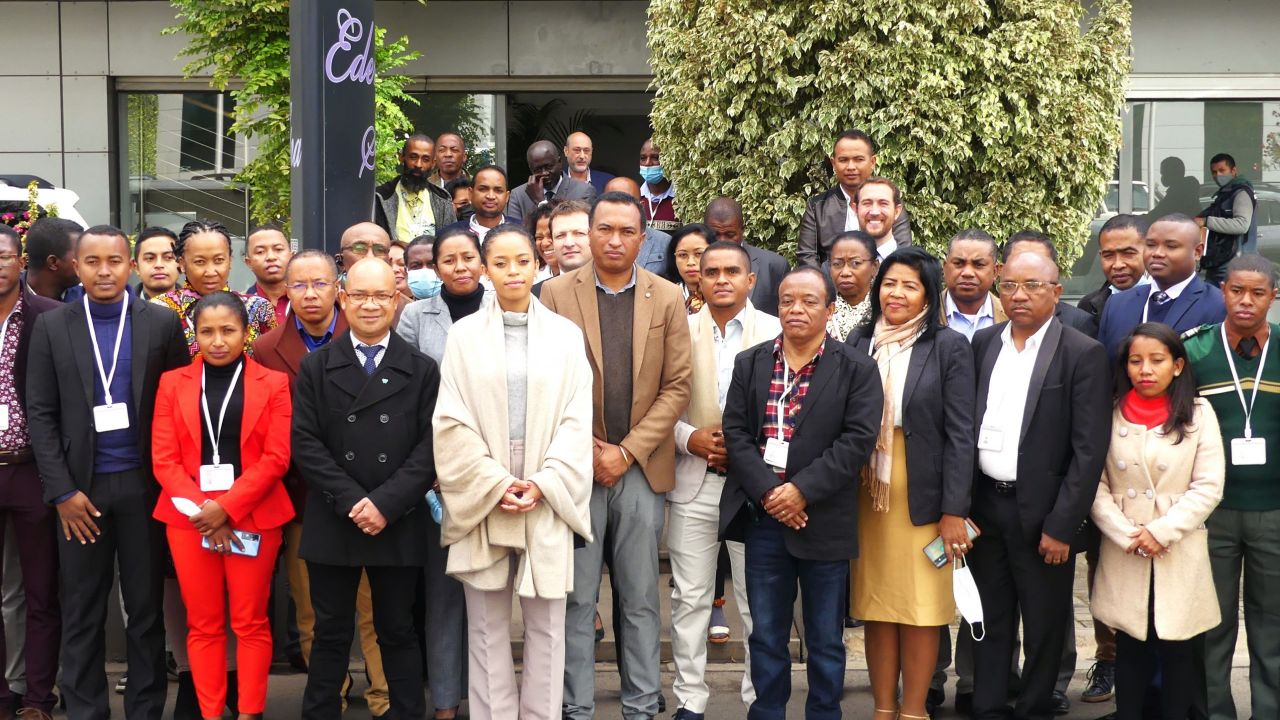
Shark and ray species (over 1,200 species globally) are literally and figuratively in hot water—their populations are declining and some of their body parts are among the most valuable in the global seafood trade, which includes the well-known trade in dried fins for shark-fin soup.
While the fins in the global fin trade come from more than 75 different species, just a handful of unfortunate species dominate the international trade volume. These include blue sharks, silky sharks, mako sharks and hammerhead sharks. In addition to these true shark species, several “shark-like ray” species, such as the wedgefishes, are also heavily targeted as they are known to have some of the most valuable fins in the trade.

Shark fins in the trade from Madagascar. Photo credit: Rhett Bennett/WCS
Shark-like rays are relatives of sharks that resemble sharks with their large vertical dorsal fins and tail fins, but which are actually rays—their gills are positioned underneath the body, making them easily distinguishable from sharks.
Dried sea cucumbers (known as bêche de mer in French and which look a bit like underwater sausages) are also traded in huge volumes globally. As is the case with sharks and rays, there are more than 1,200 sea cucumber species globally. There are increasing concerns over population declines among these species, despite having a life-history much more capable of withstanding exploitation than sharks.
International Shark Awareness Day is a global drive to raise awareness about sharks and rays, their important ecological roles, their contributions to society (food and income) in many places, and their generally poor conservation status globally (at least 33 percent of the world’s shark and ray species are considered threatened with extinction).

Critically Endangered scalloped hammerhead shark Sphyrna lewini landed in Madagascar. Photo credit: Christelle Razafindrakoto/WCS
Madagascar, a country with extensive fisheries for trade in sharks, rays, and sea cucumbers, embraced the spirit of this year’s International Shark Awareness Day on July 14, as numerous government and non-government stakeholders met formally to tackle the challenges of managing the trade in these highly sought-after food products.
Representatives of the Ministry of Environment and Sustainable Development (MEDD), Ministry of Fisheries and Blue Economy (MPEB), European Union, its Madagascar Governance Strengthening Program (RINDRA project), Fisheries and Marine Sciences Institute (IHSM), National Centre for Oceanographic Research (CNRO), the fishing traders company, Customs Department, Food and Agriculture Organization (FAO), Wildlife Conservation Society (WCS), Florida International University (FIU), TRAFFIC and other organizations were among the nearly 80 delegates in attendance.
For nearly half a century, Madagascar has been a party to the world’s primary international wildlife trade control mechanism CITES (the Convention on the International Trade in Endangered Species of Wild Fauna and Flora—a multinational environmental agreement developed to ensure sustainable international trade in animal and plant products), and the State is thereby bound by CITES trade controls.
CITES Parties meet every few years to discuss species that are in need of stricter international trade controls to curb their unsustainable trade. Globally, 14 shark, 30 ray and 3 sea cucumber species are listed on Appendices I and II of CITES—lists of species whose trade Parties are obligated to control (these include 12 shark, 9 ray and 2 sea cucumber species present in Madagascar).

Delegates at the Madagascar CITES implementation meeting. Photo credit: Wilfred Razafindramasy/WCS.
The species listed on Appendix II need stricter monitoring and control of their trade, to ensure sustainability, while those on Appendix I are prohibited from international commercial trade.
The meeting in Madagascar, a great support for Shark Awareness Day, allowed global and local scientists and experts to share information and expertise to raise awareness on shark, ray and sea cucumber species, and to work together to develop ways to improve the implementation of CITES measures for them, to help ensure that their international trade becomes sustainable.
This work is part of a broader initiative to raise awareness and improve the implementation of CITES trade controls for sharks and rays in the Western Indian Ocean and globally. The initiative is a priority in the face of increasing reports of the scale of marine biodiversity loss and the recent outcomes of the UN Ocean Conference and WTO Fisheries Subsidies meetings.
Furthermore, countries are preparing for the 19th Conference of the Parties to CITES, which will take place in Panama in November 2022, where several other species of sharks, rays and sea cucumbers will be tabled for potential listing on the CITES Appendices.
The information shared during such national workshops helps governments to decide which species are in need of improved trade controls, and which proposals warrant their support. However, the implementation of CITES controls, and thus the extent to which they can be effective, is dependent on the willingness and capacity of governments to make this happen.
The Honourable Minister of the Environment and Sustainable Development, VINA Marie-Orléa, in her heartfelt opening speech at the recent Madagascar meeting, made a call to action for the Malagasy people and management authorities, saying “We need to face the critical damage to nature. Nature does not only belong to the Government, it belongs to the Malagasy population and the world’s population. Each person has a responsibility to protect our environment and marine species.”
The Madagascar government, through this meeting, has thus made an unequivocal statement of its intention to improve the sustainability of trade in these highly sought-after and highly threatened species.
[This CITES implementation meeting in Madagascar was made possible through the generous financial support of the European Union’s RINDRA project and the Shark Conservation Fund. The Shark Conservation Fund is a philanthropic collaborative pooling expertise and resources to meet the threats facing the world’s sharks and rays. The Shark Conservation Fund is a project of Rockefeller Philanthropy Advisors.]
